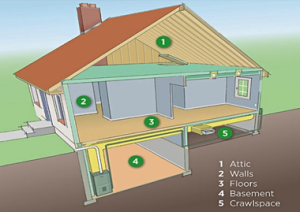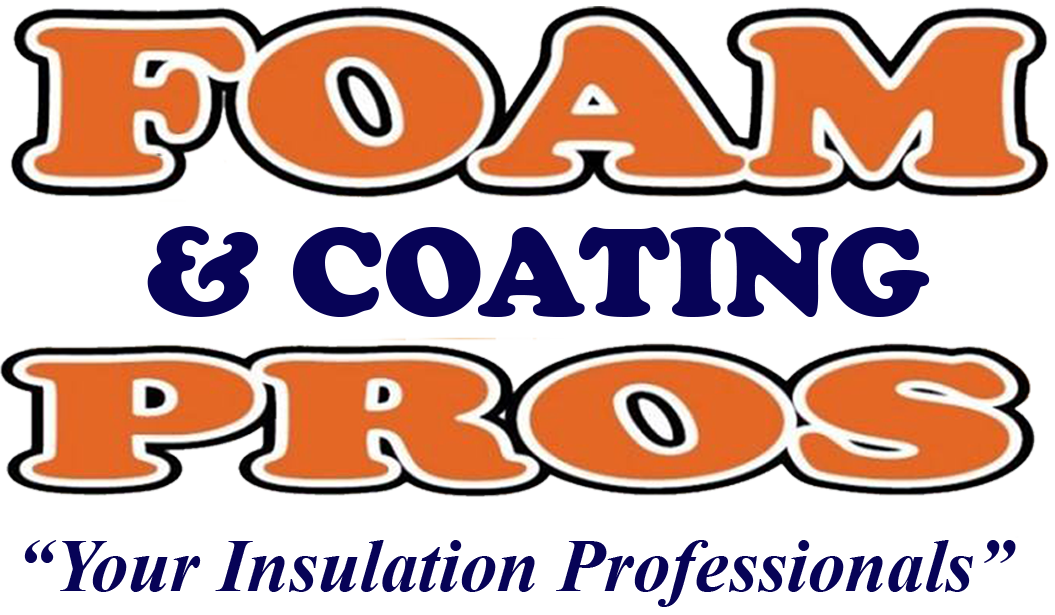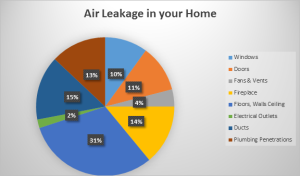Homeowners
Insulating a Home
Insulation, what is it?
 Insulation, simply put, is a quality of a substance to “resist” transferring heat (or cold, basically energy) through it. Used to allow the internal environment temperature to remain constant independently of external temperatures.
Insulation, simply put, is a quality of a substance to “resist” transferring heat (or cold, basically energy) through it. Used to allow the internal environment temperature to remain constant independently of external temperatures.
R-Value
The R-value of a substance is its direct measure of its resistance to transferring energy or heat. The higher the figure the better it is at resisting energy transfer. The higher the figure the better it is.
WHY SPRAY FOAM?
Spray Foam insulation can be applied to walls, on attic surfaces, or under floors to insulate and reduce air leakage.
We use two types of spray foam insulation: closed-cell and open-cell. Both are made with polyurethane. With closed-cell foam, the medium-density cells are closed and filled with a gas that helps the foam expand to fill the spaces around it. This rigid foam is the most versatile and effective, offers the highest R- value per inch and is the most energy efficient insulation on the market today, providing both an air barrier and a vapor barrier.
Open-cell foam cells, are not as dense and are filled with air, which gives the insulation a softer spongy texture. However, it has only about half the R-value and has to be applied in greater thicknesses to achieve the same results. It functions exceptionally well for sound-proofing and filling deeper cavities, but requires the application of a vapor barrier.
The type of insulation you should choose depends on how you will use it and on your budget. While closed-cell foam has a greater R-value and provides stronger resistance against moisture and air leakage, the material is also much denser and is a bit more expensive to install. Open-cell foam is lighter and less expensive but should not be used below ground level where it could absorb water
-
Save on energy bills –foam insulation can help you save on heating and cooling costs by up to 50%.
-
Reduce heating and A/C size – You may be able to reduce the size of your heating and cooling equipment, saving installation or replacements costs.
-
Get better payback & resale – Investing in insulation that can create an air barrier and minimize random air leaks can deliver fast payback, and buyers may be willing to pay more for a home with lower energy costs.
-
Reduce dangers of respiratory distress – allergies, asthma, and certain chemical sensitivities can be caused by natural airborne irritants.
-
Minimize pollutants – dust and dirt, mold and moisture, radon, exhaust fumes, and carbon monoxide are reduced by air sealing, to keep your home and air clean.
-
Reduce drafts – a home without spray foam insulation loses enough air each day to fill two blimps.
-
Avoid hot and cold spots – seal between heated/cooled living spaces and unconditioned spaces such as garages and basements, to maintain even temperatures throughout your home.
-
Reduce noise – open-cell spray foam can help reduce sound from noisy indoor rooms such as media rooms and laundry rooms, outdoor noises such as traffic and playgrounds, and transferred noise such as flushing toilets.
-
Protect against moisture – 99% of the moisture that enters the walls of your home is carried in the air. You can reduce the amount of moisture that gets into your home, and the mold and moisture damage that can come from it, by air sealing it with spray foam insulation.
-
Keep pests out –closed-cell spray foam insulation does not provide a source of food for rodents, termites, or other nasty critters. It also doesn’t make for good nests, and as a solid material it’s difficult to pass through, helping protect your home from critters.
-
Structural Integrity – Depending on your application, and the product you choose, closed-cell spray foam can offer extra structural stability to your walls which can’t be achieved using other traditional forms of insulation.


